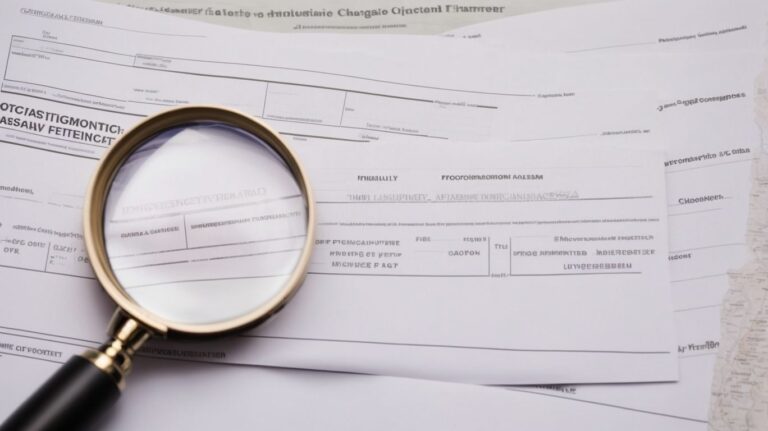Forensic psychology is a fascinating and complex field that combines the principles of psychology with the criminal justice system. In this article, we will explore the role of a forensic psychologist, the key concepts and methods used in this field, as well as the ethical considerations and career opportunities.
Whether you are interested in criminal behavior, expert testimony, or the evaluation of competency to stand trial, this article will provide a comprehensive overview of forensic psychology and its various applications.
Contents
- 1 Key Takeaways:
- 2 What is Forensic Psychology?
- 3 What is the Role of a Forensic Psychologist?
- 4 What is the Difference Between Forensic Psychology and Criminal Psychology?
- 5 What Are the Key Concepts in Forensic Psychology?
- 6 What Are the Methods Used in Forensic Psychology?
- 7 What Are the Ethical Considerations in Forensic Psychology?
- 8 What Are the Career Opportunities in Forensic Psychology?
- 9 Frequently Asked Questions
- 9.1 What is forensic psychology?
- 9.2 What are some key topics in forensic psychology?
- 9.3 How is forensic psychology different from traditional psychology?
- 9.4 What types of careers are available in forensic psychology?
- 9.5 What is the role of a forensic psychologist in the criminal justice system?
- 9.6 What are some ethical considerations in forensic psychology?
Key Takeaways:
What is Forensic Psychology?
Forensic psychology is a specialized field that involves the intersection of psychology and the legal system, as defined by the American Psychological Association.
This field applies psychological principles to understand aspects such as criminal behavior, legal processes, and the administration of justice.
Forensic psychologists play a crucial role in various domains, including providing expert testimony in court, conducting evaluations for competency to stand trial, and assessing mental state at the time of an offense.
Moreover, forensic psychology often involves collaborating with law enforcement agencies to create offender profiles, helping with risk assessment for potential perpetrators, and advising on treatment programs in correctional settings.
What is the Role of a Forensic Psychologist?
The role of a forensic psychologist encompasses various responsibilities such as assessing criminal behavior, providing expert testimony in court, and evaluating competency to stand trial.
Forensic psychologists play a critical role in the legal system, where they utilize their expertise to assess and analyze criminal behaviors, motives, and intentions. They often collaborate with law enforcement agencies and legal professionals to develop profiles of offenders, assist in jury selection, and provide insights into the psychological factors that may have influenced a crime.
Along with this, their involvement extends to evaluating the mental competency of individuals to stand trial, determining their sanity at the time of the offense, and assessing the risk of re-offending.
To become a forensic psychologist, one typically pursues advanced education in psychology, completing a doctoral degree in forensic psychology or a related field. This extensive education equips them with a deep understanding of criminal behavior, psychopathology, and the legal system’s intricacies. They undergo specialized training in forensic assessment techniques, forensic interviewing, and the ethical considerations involved in working within the legal environment.
Assessing Criminal Behavior
Assessing criminal behavior is a primary responsibility of forensic psychologists, involving the application of psychological principles to understand and analyze various aspects of criminal conduct.
Forensic psychologists employ diverse psychological frameworks to comprehend the complexities of criminal behavior. They utilize psychodynamic theory to delve into unconscious motivations and conflicts that may drive criminal actions.
Furthermore, cognitive-behavioral approaches are utilized to examine thought patterns and behavior incentives in offenders. This allows for a deeper understanding of the underlying factors that contribute to criminal behavior.
The integration of biological perspectives also plays a crucial role in this process. By examining genetic and neurological influences, forensic psychologists are able to gain a comprehensive understanding of the complex factors that contribute to criminal behavior.
Providing Expert Testimony
Forensic psychologists play a crucial role in providing expert testimony in court, drawing from their expertise to offer insights and analysis in various legal cases.
This testimony serves as a bridge between complex psychological concepts and the legal system. By presenting their findings in a clear and understandable manner, forensic psychologists help judges and juries comprehend the intricacies of human behavior, mental health, and cognition.
The ability of these professionals to communicate effectively is essential, as it directly impacts how their evaluations and opinions are perceived and utilized within the legal framework.
Evaluating Competency to Stand Trial
Evaluating competency to stand trial is a critical task undertaken by forensic psychologists, often involving assessments conducted within mental health facilities and forensic hospitals.
When a defendant’s mental fitness to stand trial is questioned, a comprehensive evaluation is essential to determine their ability to understand the charges against them and assist in their own defense.
This evaluation usually takes place in specialized settings such as forensic psychiatric units or outpatient clinics where trained professionals utilize standardized assessment tools and interviews to assess the defendant’s comprehension, reasoning, and decision-making abilities.
What is the Difference Between Forensic Psychology and Criminal Psychology?
The distinction between forensic psychology and criminal psychology lies in their respective focuses on societal issues and gender-related dynamics within the realm of psychological research and practice.
In forensic psychology, the focus is on utilizing psychological principles and techniques in legal and criminal justice contexts. This includes tasks such as evaluating individuals involved in legal matters, assessing competency, and providing expert testimony in court cases.
On the other hand, criminal psychology explores the study of criminal behavior, motivations, and patterns. This field often integrates knowledge from sociology, criminology, and anthropology to develop a comprehensive understanding of criminal behavior.
What Are the Key Concepts in Forensic Psychology?
Key concepts in forensic psychology encompass areas such as criminal responsibility, the insanity defense, and the application of neuropsychological principles in legal contexts.
When examining criminal responsibility, forensic psychologists delve into the mental state of individuals at the time of the offense. They assess their capacity to understand the consequences of their actions, which plays a crucial role in determining culpability and appropriate sentencing.
The insanity defense introduces the complexity of mental illness and its impact on an individual’s ability to discern right from wrong. This adds another layer to the evaluation process, as it requires a thorough understanding of psychological disorders and their effects on behavior.
The evaluation of neuropsychological principles involves understanding how the brain functions in relation to behavior and decision-making. This sheds light on factors that may influence an individual’s actions in a legal context, providing valuable insight for the legal system.
Criminal Responsibility
Criminal responsibility is a pivotal concept in forensic psychology, demanding extensive research and cognitive analysis to understand the factors influencing criminal conduct and accountability.
This concept involves evaluating an individual’s mental state at the time of committing a crime, assessing their capacity to perceive right from wrong, and determining their ability to control impulses.
Forensic psychologists use cognitive assessments to delve into the mental processes underlying criminal behavior, exploring decision-making, moral reasoning, and impulse control.
Research implications encompass understanding the impact of trauma, substance abuse, and mental illness on criminal responsibility, thus informing legal and rehabilitative interventions.
Insanity Defense
The insanity defense is a critical aspect of forensic psychology, often involving assessments and interventions within forensic hospitals and mental health facilities to address the complexities of mental health and legal culpability.
One of the primary intricacies of the insanity defense lies in the delicate balance between mental health and legal responsibility. Forensic psychologists play a crucial role in evaluating the mental state of individuals who invoke the insanity defense, determining whether their condition meets the criteria for legal insanity.
In forensic hospitals, individuals undergoing assessment and treatment receive specialized care tailored to their mental health needs while ensuring public safety. Forensic hospital staff, including psychiatrists, psychologists, and social workers, employ a range of therapeutic interventions to address the underlying mental health concerns and promote recovery.
The connection between the insanity defense and mental health facilities underscores the collaborative nature of forensic psychology and the legal system. It involves a multidisciplinary approach, with legal professionals, mental health experts, and rehabilitation specialists working together to ensure that individuals receive appropriate care while upholding legal standards.”
Competency to Stand Trial
Assessing competency to stand trial is a fundamental aspect of forensic psychology, intersecting with civil law and the guidelines established by the American Psychology-Law Society to ensure fair and just legal proceedings.
Competency to stand trial refers to a defendant’s mental capacity to understand the nature of the charges against them and to participate in their own defense.
Forensic psychologists play a crucial role in evaluating defendants’ competency through comprehensive assessments, often involving interviews, psychometric testing, and review of medical records. These evaluations must adhere to the standards set forth by professional associations such as the American Psychological Association and the American Board of Forensic Psychology.
What Are the Methods Used in Forensic Psychology?
The methods used in forensic psychology encompass clinical interviews, psychological testing, and assessments conducted within diverse settings including forensic hospitals and juvenile facilities.
Forensic psychology relies heavily on clinical interviews to delve into the mental state of individuals involved in legal proceedings. Through these interviews, psychologists gain invaluable insights into the cognitive and emotional factors that may impact behavior.
Additionally, psychological testing is a crucial aspect of forensic psychology. These tests assess cognitive abilities, personality traits, and risk of recidivism, providing valuable information for determining legal competencies, understanding criminal behavior, and developing effective rehabilitation strategies.
Clinical Interviews
Clinical interviews serve as a cornerstone of forensic psychology, enabling professionals to provide critical insights and social assessments in legal and clinical contexts.
Forensic psychologists rely on interviews to gain a thorough understanding of individuals’ mental health, behavior, and cognitive function. These interviews are crucial in legal proceedings and treatment strategies. They help assess the credibility of witnesses, defendants, and victims, aiding in the resolution of legal cases.
The information gathered from these clinical interviews is essential in developing personalized interventions and rehabilitation plans for those involved in legal matters. In the field of forensic psychology, these interviews are invaluable in unraveling complex human behavior and understanding its implications in both legal and clinical settings.
Psychological Testing
Psychological testing forms a vital component of forensic psychology, encompassing assessments of cognitive and developmental factors to understand various psychological phenomena and behavioral patterns.
It plays a crucial role in aiding forensic psychologists to evaluate and interpret an individual’s cognitive functioning, personality traits, and behavioral patterns. These evaluations provide valuable insights into an individual’s mental state, enabling forensic psychologists to offer informed opinions on legal matters, such as competency to stand trial, testamentary capacity, and the presence of mental disorders.
Additionally, psychological testing aids in understanding the impact of trauma, abnormal development, and neurological impairments on an individual’s psychological and behavioral functioning within the criminal justice system.
Observational Methods
Observational methods are integral to forensic psychology, often employed in diverse settings including forensic hospitals and criminal environments to understand behavioral dynamics and patterns.
These methods play a crucial role in examining criminal behaviors and diving into the complexities of human actions within the legal context.
By observing individuals within controlled environments or in real-world scenarios, forensic psychologists can gain valuable insights into motives, decision-making processes, and reactions.
This aids in the assessment of potential risks, providing a foundation for psychological evaluations and the development of targeted intervention strategies to prevent future criminal activities.
Case Studies
Case studies play a pivotal role in forensic psychology, providing valuable insights into criminal behavior, legal proceedings, and the operational dynamics of forensic psychology centers.
These in-depth examinations of individual cases allow forensic psychologists to comprehensively analyze the intricate interplay of psychological, environmental, and situational factors that influence criminal behavior.
By diving into specific cases, forensic psychologists gain a nuanced understanding of the motivations, thought processes, and behavioral patterns exhibited by offenders. Case studies aid in elucidating the complex dynamics within legal processes, shedding light on factors such as witness credibility, the impact of trauma on memory, and the validity of psychiatric evaluations.
What Are the Ethical Considerations in Forensic Psychology?
Ethical considerations in forensic psychology encompass adherence to the guidelines set forth by the American Psychological Association, particularly within the confines of legal settings such as prisons and correctional facilities.
Forensic psychologists face unique challenges in maintaining ethical standards due to the intersection of criminal justice systems and mental health. These professionals are tasked with navigating complex legal environments while upholding the APA Ethics Code and relevant state laws.
The ethical responsibilities of forensic psychologists extend to issues such as informed consent, confidentiality, and competency evaluations.
What Are the Career Opportunities in Forensic Psychology?
The field of forensic psychology presents diverse career opportunities for professionals, including roles in research, clinical practice, and the pursuit of specialized degrees certified by organizations like the American Board of Forensic Psychology.
Forensic psychologists can find opportunities in various settings such as law enforcement agencies, correctional facilities, court systems, and private consulting firms. They may also specialize in areas such as criminal profiling, assessing mental competency, and providing expert testimony.
To become a forensic psychologist, individuals typically pursue a doctoral degree in psychology with a focus on forensic studies and then obtain relevant licensure. Certified forensic psychologists can enhance their credentials through specialized certifications offered by professional organizations, demonstrating their expertise and commitment to the field.
Frequently Asked Questions
What is forensic psychology?
Forensic psychology is a specialized field of psychology that combines principles and knowledge from both psychology and law to understand the criminal justice system and the behavior of individuals involved in it.
What are some key topics in forensic psychology?
Some key topics in forensic psychology include criminal behavior, offender rehabilitation, eyewitness testimony, competency to stand trial, and mental health evaluations in legal proceedings.
How is forensic psychology different from traditional psychology?
Forensic psychology differs from traditional psychology in that it focuses on the intersection of psychology and law, rather than solely on mental health and therapy. It also involves working with clients in legal settings and providing expert testimony in court.
What types of careers are available in forensic psychology?
Careers in forensic psychology include working as a psychologist in correctional facilities, law enforcement agencies, legal settings, and research institutions. One can also pursue a career as a consultant or expert witness in legal cases.
What is the role of a forensic psychologist in the criminal justice system?
The role of a forensic psychologist in the criminal justice system is to apply their knowledge of psychology to legal issues, such as evaluating offenders, providing treatment to inmates, and conducting research on criminal behavior.
What are some ethical considerations in forensic psychology?
Some ethical considerations in forensic psychology include maintaining confidentiality, avoiding conflicts of interest, ensuring informed consent, and being aware of cultural and diversity issues in the legal system.







